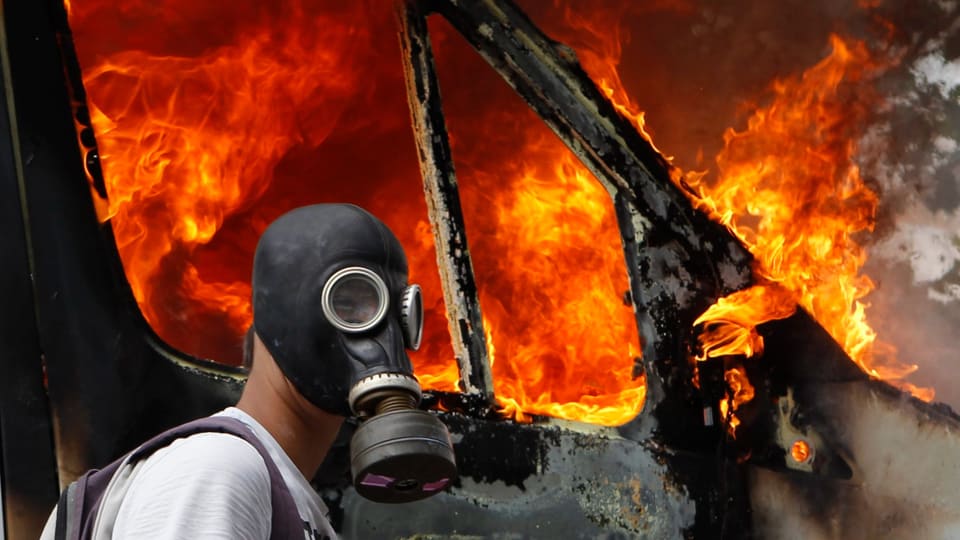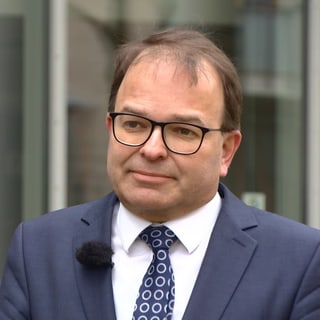Middle East crisis, energy crisis, climate crisis – there is almost a “polycrisis”. This refers to the situation of several crises at the same time that determine events. But: Is the world actually turning into the abyss, or does it just look that way? One person who knows more about this is Frank Roselieb. He deals with the topic professionally.
SRF News: Is it really the case that we have more crises today than before?
Frank Roselieb: The number of crises in German-speaking countries has remained fairly constant over the past 40 years. In the past, however, we had more operational crises – plane crashes or hotel fires – today we are seeing more communication crises such as shitstorms. Today the perception of crises is much stronger than it was a few decades ago.

Legend:
One crisis seemingly follows the next – but this perception also has to do with our media consumption today.
Reuters/Yannis Behrakis
So is the term crisis used today in a quasi-inflationary way?
Previously, an event was only considered a crisis if many people were killed and injured. Today we have said goodbye to this body count – so there is no longer a hard measure as to when an event is a catastrophe or crisis.
The current crises are not that new.
In addition, some crises repeat themselves: pandemics, wars, natural disasters. We had the same thing 20 years ago, albeit in reverse order: At the end of this series was the SARS pandemic in 2002, before that there were severe floods on the Elbe in the summer of 2002, before that the collapse of the new economy and the terrorist attacks in September 2001 New York and the Pentagon. The terrorists then also struck in Madrid and London. So the current crises are not that new.
Why is a crisis now being talked about more quickly and more frequently?
It used to take longer to notice one crisis – and the next one, and the one after that. Back then, you first noticed that something had happened in the evening while watching TV. The next day there was something about it in the newspaper.
Today one has the feeling that one crisis follows the next.
Today, your cell phone constantly gives you alerts that this or that has happened. The threshold for such breaking news is relatively low. Accordingly, you have the feeling that one crisis follows the next and you no longer have time to take a deep breath. What would be called for is a kind of collective debriefing. But such signals are currently missing.
Can the crisis also become a permanent condition?
Actually not. Because you always try to overcome a crisis. We also have a built-in mechanism in our body to defend ourselves against crises. These are the three Rs: resilience, redundancy and robustness. Thanks to these automatisms, many crises resolve themselves at some point.
Given the prevailing feeling of permanent crisis, what can be done to remain resilient?
You have to take people along communicatively in times of crisis. A kind of crisis manager has to show them the way so that they can always regain courage – this is called the silver lining. In a crisis, communication and leadership are important, as is a certain basic level of optimism.
You shouldn’t lose your basic optimism – things have always gone well.
In my more than 25 years of working as a crisis manager, I have experienced several pandemics or plane crashes and helped manage and deal with the crisis. So far it has worked well every time – regardless of whether it was war or economic crisis. This basic optimism should not be forgotten – and should not be lost.
The interview was conducted by Amir Ali.
